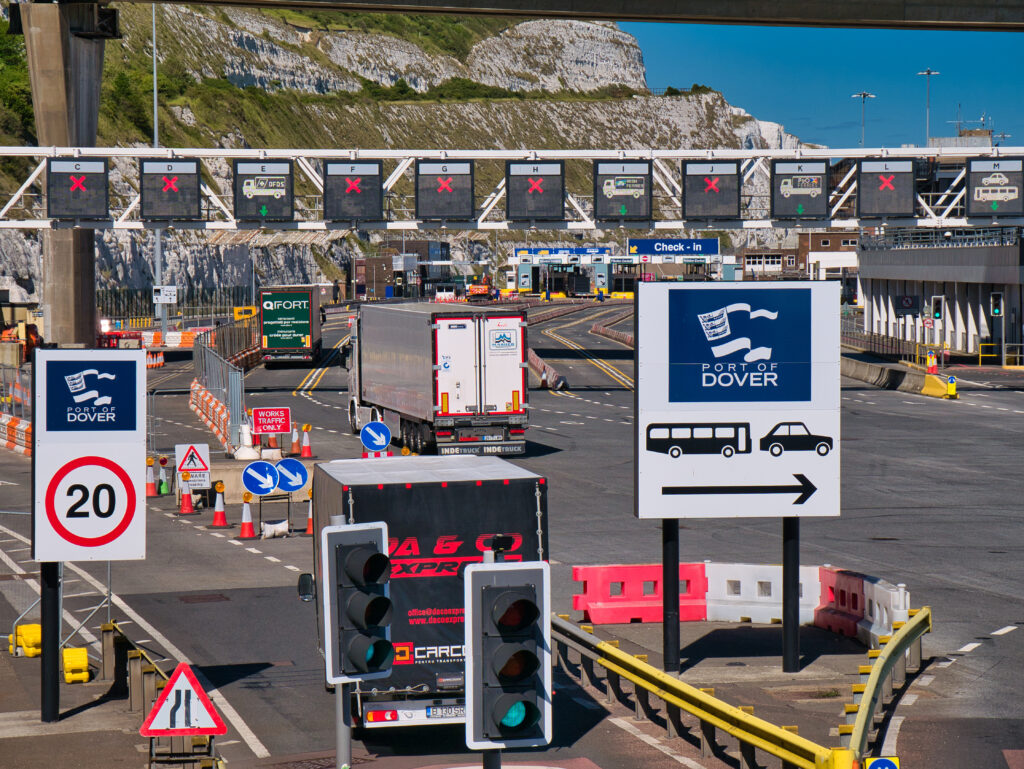Defra’s two most senior figures failed to give coherent answers to MPs during a hearing on Tuesday, in response to ‘excoriating’ criticisms by the Dover port health authority (DPHA) about the Department’s stance on funding for illegal meat checks and future customs arrangements.
Defra Secretary Steve Barclay and Permanent Secretary Tamara Finkelstein struggled to explain the situation during an uncomfortable session in front of the Environment, Food and Rural Affairs (EFRA) Committee.
Prior to the meeting, EFRA published a damning letter to it from Lucy Manzano, head of Dover port health & public protection, which suggested Defra had misled the committee of MPs in its response in February to questions on illegal meat import checks at the port and the decision to move legal customs checks to a new inland site from April.
“I have to say it’s one of the most excoriating letters I’ve ever seen in relation to what a minister has said and put in writing,” Labour MP Barry Gardiner told Mr Barclay during the hearing.
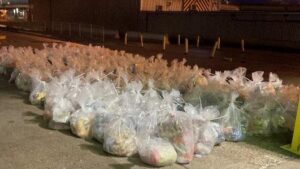
In her letter to EFRA, Ms Manzano wrote: “I am disappointed to observe that the letter to you does not answer the questions asked, contains many points of inaccuracy, and includes statements that are both confused and misleading as to the current position at the frontline and the position as planned by Defra post April 2024.”
But during Tuesday’s hearing, Mr Barclay and Ms Finkelstein appeared to further muddy the waters, contradicting DPHA in various areas, including the nature of the cuts and the respective roles of DPHA and Border Force UK in illegal meat seizures.
Funding cuts
Since new rules banning imports of pork products over 2kg not produced to EU commercial standards were introduced in September 2022 as an African swine fever control, DPHA and Border Force UK have seized around 75 tonnes of illegally imported meat at the Port of Dover, the vast majority of it, pork from countries affected by ASF. It is widely accepted that this is just the ‘tip of the iceberg’.
Defra told DPHA in December that it was cutting DPHA’s budget for this work from £3.2m to £1.2m in 2024/25, starting in April, and then to nothing in 2025/26. The council says it needs £4m to perform the work, which has also been extended to Coquelles on the other side of the Channel, further stretching resources.
Defra, in its written response to EFRA and then in Tuesday’s hearing, has tried to justify the cuts by saying they are a response to moving the border control point (BCP) for commercial meat checks from Bastion Point at Dover to a new dedicated site at Sevington 22 miles inland to Sevington under the new Border Target Operating Model (BTOM) from April.
In its letter to EFRA, Defra Minister Lord Douglas-Miller claimed the funding for DPHA was only temporary until the BTOM was in place, and repeatedly stressed that Border Force was ‘responsible for the management of illegal imports’, while DPHA officers ‘support’ it when illegal imports are identified.
The Defra Minister said the Department has advised PHAs that they are expected to ‘introduce charging to recover costs incurred when dealing with illegal imports to supplement core funding’.
However, in her letter to EFRA, Ms Manzano said Defra’s response to questions about funding for DPHA are ‘confused and muddy the water’.” They do not accurately represent the position at the Dover Border,” she said.
She insisted that the £3.6m provided by Defra for 2023/24 was ‘to complete ASF checks at the Port of Dover only’, adding that Defra had provided no impact assessments of its withdrawal of the funding.
She also strongly refuted Defra’s claim that Border Force is responsible for the management of illegal imports. “This statement is misleading in this context. Dover PHA staff have not been ‘supporting’ Border Force, as presented. DPHA are legally responsible for ASF controls and removing illegal EU meat imports at the Port of Dover and separately at the Coquelles border,” she said, highlighting DPHA’s legal basis to ‘inspect, examine, seize, retain, and order destruction to ensure with the rules laid down in the Official Controls’.
Ms Manzano dismissed the suggestion that Dover could introduce charging to recover costs incurred when dealing with illegal imports. “Again, this is misleading in this context as it conflates two different pathways. There are charging provisions for non-compliant SPS checks under the BTOM, but not for ASF controls under personal imports. In addition, in relation to ASF cost recovery, this statement would largely not apply to any other PHA due to the ASF trade routes,” she said.
She claimed Defra’s decision to slash DPHA funding contradicts its assertion that biosecurity is a priority and that it has ‘robust mechanisms’ to keep ASF out, pointing out that prohibited meat is arriving now at Dover in large quantities from areas within the ‘highest risk zone’ of identified ASF risk.
She described Defra’s claim that it was ‘open to discussion’ on future budget levels’ as ‘misleading and not accurate’, given that ‘critical correspondence dating from 2023 remains unanswered’. She described Defra’s actions as ‘needless and complacent’.
Defra response
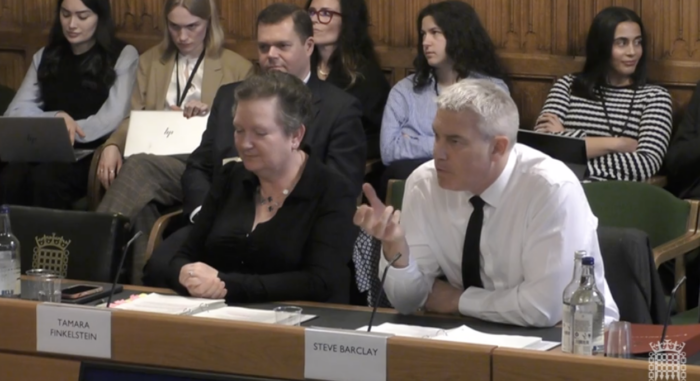
Asked by Mr Gardiner about DPHA’s comments on the funding cuts for ASF checks at Dover, Mr Barclay said: “It is the case that because dealing with the legal imports of food has moved from Dover, that has led to a reduction in the funding to Dover, who continue to be responsible for the illegal controls and port risk checks. So, Dover continues to be the front line for that.
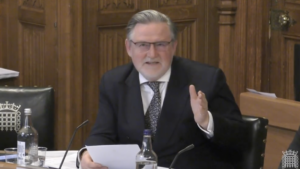
“But, where through the health certificates, advance information isprovided, on a risk-based basis, that is taken away from Dover. Dover port authority is not content with that decision but there are very good reasons for that.”
Ms Finkelstein said DPHA’s funding will be cut to zero for checks on legal imports. She added: “But they will get funding to continue their work with Border Force on some of those illegal imports, so I think there’s something slightly misleading on what you have had provided to you. But Dover is unhappy about the decision that Sevington will be main way in which legal imports will be checked.”
Neither of the Defra figures gave an answer when it was suggested by Mr Gardiner that claims DPHA could recover its costs for illegal meat checks were ‘misguided’.
Sevington
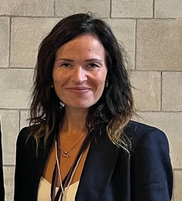
In her letter, Ms Manzano addressed the decision to move legal checks under the BTOM from Dover to Sevington from April, a move DPHA believes will seriously compromise the UK’s biosecurity. “Lorries will arrive at Dover and leave unchecked and uncontrolled to self-present if they choose at Sevington,” she said.
“Defra will create a gaping hole in this border that does not currently exist. The proposed BCP at Sevington will create an open door to enable unchecked Rest of World POAO goods to enter Dover and drive through it (which they haven’t been able to do before) and into GB uncontrolled.”
Mr Barclay told MPs the decision to switch these checks to the new facility at Sevington was partly ‘because Dover doesn’t have sufficient space in our view to carry out the checks that are needed’, a point reinforced by EFRA chair Sir Robert Goodwill, who has visited the site.
Mr Barclay refuted ‘scare stories’ that Sevington would not be ready for the new regime in April, although he acknowledged that there would no live import checks at the start. He also denied claims by DPHA that Defra’s modelling had massively underestimated the number of checks that would be required at Sevington, which therefore risked being overwhelmed.
“The key is that we are taking a risk-based approach, focused on the medium and high risk, and that is what underscores everything that we’re doing at the border,” he said.
Asked by Sir Robert how Defra would ensure consignments sent from Dover to Sevington ‘actually arrive there and they won’t be tran-shipped or dumped in layby’, Mr Barclay’s answer was less than convincing.
“It is where, through the risk assessment, we made an assessment. Those are the ones that will be going to Sevington,” he said, adding that some ports around the world ‘are large’ and vehicles have to travel long distances within them, in the same way they will when they have to travel to Sevington.




